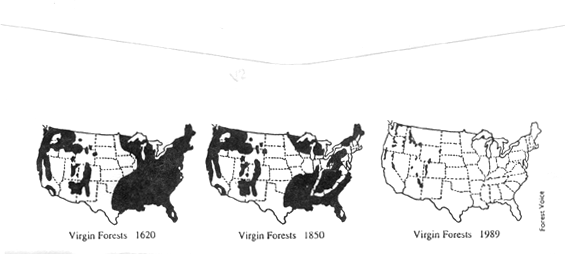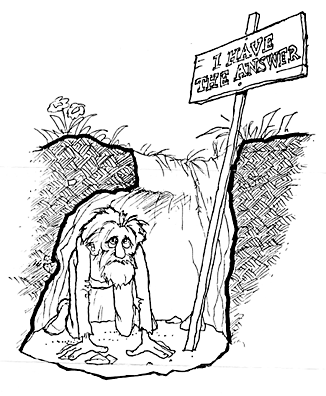|
MALCOLM WELLS on housing: ". . . almost every house being built in America today is . . . an energy sieve . . . essentially the same as ones built 10 to 20 years ago, the main difference being a lot of token energy saving devices that help boost the sales prices. Conventional houses, regardless of their exterior styles, are so abysmally bad that we should be aiming our entire arsenal of potshots at them. They're so far below modern housing's potential their promoters seem to be almost criminally negligent . . . . " Guest editorial, Alternative Sources of Energy/53, January 1982. MALCOLM WELLS on the New Jersification of Cape Cod: "To me, places like Brewster looked like the New Jersey I had known as a kid growing up in Cherry Hill . . . quiet villages along winding lanes . . . old houses . . . lilacs and roses. The resemblance, of course, was only superficial. new Jersey in the 1930s wasn't run on nuclear power and Middle East oil. And in the Depression we couldn't afford to throw away all the waste a modern Cape Codder does. Toxic wastes were virtually unknown back then, and microwaves just a theory. . . ." From MALCOLM WELLS' Energy Essays: ". . . Trees, vines, leaves of spinach, blades of grass . . . they all know the secret. The entire plant kingdom . . . is so sophisticated that it makes the newest solar buildings look like claptrap. People who design solar collectors keep looking for the blackest of black materials to coat them with . . . But if the best collectors are green, why do the engineers keep looking for blacker blacks?" "Happy True Year! Here's a true festival day, and we haven't even been told about it . . . all over the Northern Hemisphere, from Stockholm to Fairbanks, sun-people are beginning to smile. They know what's what on earth . . . Midwinter Day requires no gifts, no turkey dinners, and no office parties. All you have to do is walk outdoors and smile, and the warmth will be spread. You'll start to see an always-before-unnoticed brightness in the season, and, as the weeks slip by toward early February (when True Spring begins) you'll see the whole nature-world getting brighter, too." The illustration is of the back of Mac's envelopes, showing virgin forests in the USA in 1620, 1850, and 1989 (from Forest Voice). "99% of all kids are born with the most efficient form of transportation ever devised. It runs of vegetables. . . ." "Must the news of each collapsing industry always come as a total shock . . . ? Must it always trigger a panic on Wall Street? Why can't each new bankruptcy be read as a signal for that particular company to start out on an imaginative new course . . .?" "Parks are like zoos: jails for nature, places where you can go to see beautiful things we'd kill if they ever took down the fences. What kind of monsters are we, anyway, to be so destructive we have to protect parts of our own world from ourselves?" "What are vacations but expensive bits of pleasure set aside in two or three-week packages to make the other fifty weeks more bearable? Can you imagine how we'd look to a creature from another planet, having to run away from our lives, once a year, in order to stand them?" ". . . Health foods: what an indictment they are. What kind of junk must supermarkets sell to make the health food industry boom the way it does?" ". . . If we ever got angry and decided to make things like food and work and cities pleasant and healthful again, then parks, and vacations, and health foods would become . . . half-forgotten aberrations in our long zig-zag journey."
"My nerves are all frazzled because for the past three days I've been held captive by a group of people just like me: earth-poets, old hippies, organic gardeners. For three days I've been sitting with them, somewhere out in the wilds of America; sitting on the floor, of course, wearing my sturdy walking boots, sneering at pesticides and deploring plastics. We've been eating so much wheat germ and being so nice to each other I can't stand us any more. . . ." ". . . I've had it up to here with poets in floppy hats. And alternate life styles. And health food stores. I mean, why do we need health-food stores? Why can't the stuff we buy in supermarkets be good food instead of colored chemicals? Why must we become weirdos if we want to change the whole mess? Who says we can't have forests and gardens in the center of our cities? Why must suburbs have such mind-crushing monotony? Will the good life forever be available only to millionaires and to repulsive old runaway freaks in floppy hats?" The illustration is an original Mac Wells cartoon. The sign says, "I have the answer." MALCOLM WELLS on Gentle Architecture: "For years, architects have been advising their clients to build on beautiful wooded lots, preferably ones with streams, views, good soil, etc. But now, at last, we know better. Such lots should be left alone! "Our job is to restore life to this worn-out American land, and there is no more satisfying way to do it than to build a life-giving house there, doing it in such a way that human needs and nature's needs begin to coincide." |

